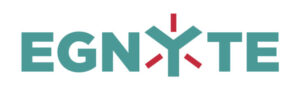CLOUD STORAGE SAFETY
“Did you upload it to the cloud?”
This is a question thrown around in most business settings in the modern age. Whether it’s something like the Terminator’s Skynet or simply Google Drive, it’s important to know about how safe your information and files are within cloud storage.
Companies use cloud storage for a multitude of reasons: backing up their computers, ease of sharing files, or remote access for employees being a few. As with anything, however, we need to make sure our data is secure and protected. Which is why NorthEast Insurance Services wants to give you as much information as we can; as well as some prevention tips.
WHAT IS IT?
Cloud storage is a process that stores data on the Internet through a cloud provider who manages and operates data storage as a service. Think of Google Drive, Dropbox, or any other digital storage space. The data that you store in a cloud is accessible nearly immediately and you can add/remove files as needed.

THERE ARE A HANDFUL OF BENEFITS TO USING CLOUD STORAGE:
In case of a weather emergency or natural disaster, your data is saved to the internet which doesn’t have a physical location and therefore can’t be damaged. Once repairs are made to the building or its reopened for business, data can then be retrieved and its business as usual.
It’s cheaper than maintaining and purchasing hardware to backup all computers and systems. Usually you only have to pay a subscription fee, if any at all, allowing your business to save money.
Remote access helps business work more efficiently. Need to access a document while away from the office? That’s no problem with cloud storage.
Similarly if your company handles many projects, cloud storage makes it easier. Saving not only time but a need to send/receive multiple emails about one thing, cloud storage allows collaboration on documents at the same time.
PLUS THERE ARE SECURITY BENEFITS AS WELL:
- Most providers use 128 or 256 bit Advanced Encryption Standard (or AES encryption). This is a type of encryption chosen by the U.S. government to protect classified information and is implemented in software and hardware to encrypt sensitive data. The number is associated with the length of the encryption cipher.
- Some offer zero knowledge security or encryption. This means that service providers don’t know anything about the data you store on their servers.
- Anywhere, anytime accessibility with an internet connection.
- Providers have security in place to ensure their physical sites are secure.
NOW ONTO THE RISKS OF CLOUD STORAGE:
- Access to your data is only as reliable as your internet connection.
- If the physical storage location of the cloud provider is outside your home country, it may not be in compliance with federal regulations.
- How secure is your data? When you don’t have it in front of you or on-site, you’re never fully confident in the security of someone else.
- While you’re taking away the responsibility of your company for your data, you’re also giving someone else the control of it. If a natural disaster or cyberattack affects your provider it greatly affects the efficiency of you and your employees when you can’t get access to your data.
- There’s a difference between the phrases “on the cloud” and “on a server”. Cloud storage providers aren’t building individual servers for each client, meaning your data and someone else’s are being saved to the same physical space. If that other person or company becomes cyber-compromised, your data could be at risk too.
- While internally your business may have strict security on external entities viewing or accessing your files, the cloud storage provider may intentionally or unintentionally expose your data.
- When it comes to backing up your data, it tends to be on the responsibility of you, not the provider to make frequent backups. While it may not be every provider that is like this, it’s still something to think about.
- The 2020 version of BYOB is BYOD or Bring Your Own Device. Your employees most likely are accessing company systems or data on their own devices. This brings into play different security protocols that are different (and usually lesser) than company security protocols. Whether it’s because they’re away for work or they just prefer their own devices, more and more employees are becoming bigger data breach targets.
CONSIDER THIS:
IT WASN’T TARGET SYSTEMS THAT WERE THE ENTRY POINT OF THEIR LARGE HACK IN 2013, IT WAS THEIR HVAC CONTACTOR.
- As with most technologies, giving access to third parties can compromise the security of your data. Whenever you give a third party access to your information and/or network, you’re risking a cyber breach. This is why you should vet the security and reliability of any APIs or third parties you plan to give access.
TOP 5 CLOUD STORAGE PROVIDERS FOR BUSINESSES
Brought to you by PC Magazine
EGNYTE

Positives: Versatile cloud and hybrid on-premises cloud storage options, designed for the needs/requirements of businesses, desktop and mobile app integration
_______________________________________________________________________________________________________________________________________________________________________
ONEDRIVE FOR BUSINESS

Positives: Available on most platforms, seamless integration with Microsoft Exchange, Office 365, and Microsoft Teams, mobile app support
_______________________________________________________________________________________________________________________________________________________________________
CITRIX CONTENT COLLABORATION

Positives: Collaboration and security focused, sharing and permissions options for employees and clients, unlimited storage
_______________________________________________________________________________________________________________________________________________________________________
DROPBOX BUSINESS

Positives: Expanded functionality to full-on file sharing platform and remote wipe security feature
_______________________________________________________________________________________________________________________________________________________________________
BOX

Positives: Cloud storage, file-sharing and synchronization features and unlimited storage and users
Watch the video above for tips and tricks when switching over to cloud storage!
While technology evolves along with businesses, ensure that you do your research before jumping into the 21st century of data storage. Take whatever time you need to research potential cloud storage providers and make sure they’re as secure as you want them to be. Ask all the questions you need to and we hope that the information we’ve provided helps you make a safer decision.
Here at NorthEast Insurance Services, we’re more than insurance. We protect what means the most to you and we’ve built our business on connecting with our clients. Choosing an agent to whom you will entrust the future of your home, valuables, business and even your family should be more than just an internet search away. If this is what you are looking for in an insurance agent, then you’ve come to the right place. Don’t wait another minute and contact us today at (732) 972-1771 or Toll Free at (800) 290-8120. Visit our Contact Us page for more information!
